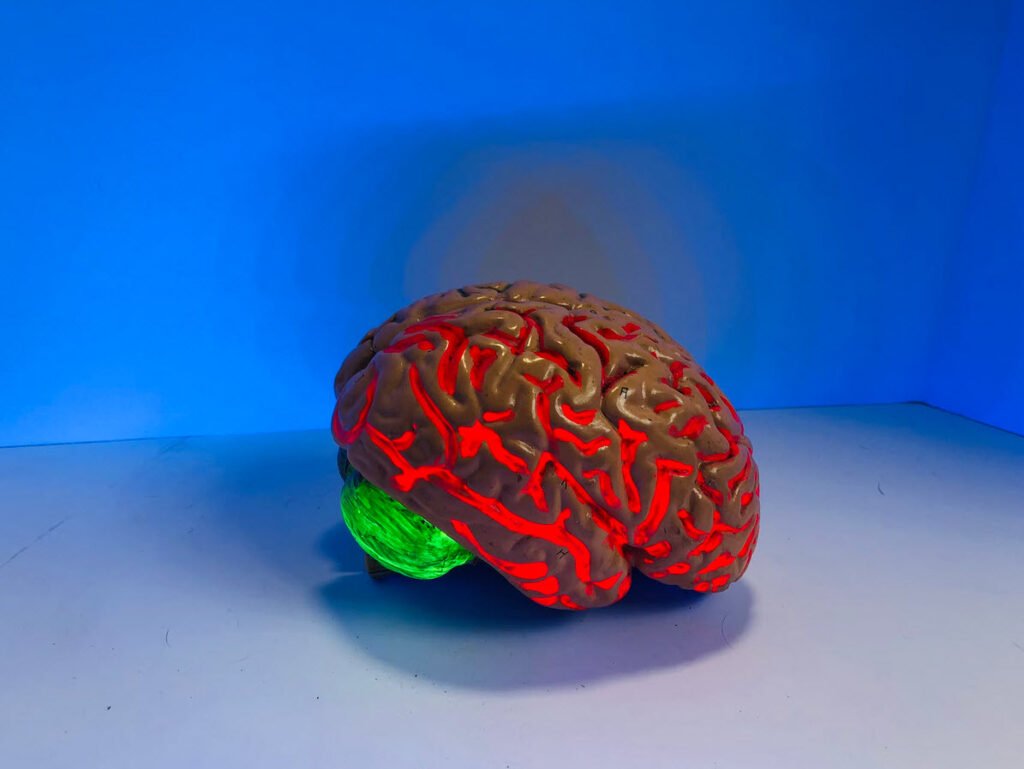
The general health and efficiency of the brain are referred to as brain health. It includes a range of elements that support stable cognitive, emotional, and behavioural functioning. This includes emotional regulation, which entails controlling and expressing emotions healthily and adaptively, the brain’s capacity to change and adapt in response to new experiences and information (neuroplasticity), mental acuities such as maintaining cognitive function, including memory, reasoning, and problem-solving skills, and mental sharpness.
Moreover, a healthy brain requires stress management, a balanced diet, regular exercise, enough sleep, and participation in mentally and socially stimulating activities. For the sake of one’s general physical and mental well-being, maintaining brain health is crucial. It can also help lower the chance of acquiring neurological illnesses like dementia or depression.
Here are the six pillars of brain health that can help nurture and safeguard this vital organ:
- Physical Exercise
- Food And Nutrition
- Sleep And Relaxation
- Medical Health
- Mental Fitness
- Social Interaction
1. Physical Exercise
Regular physical activity has been found to reduce age-related brain decline and preserve cognitive capacities, which generally deteriorate with ageing. Exercise also lowers blood pressure, prevents a vascular disease that can cause strokes, and keeps the blood supply to the brain healthy.
Exercise is as simple as taking a stroll, participating in a sport, or signing up for a fitness class, among many other options.
Exercise for the mind is just as vital as an exercise for the body. Puzzles and schooling that builds reasoning are two examples of mental exercises. Games that require strategic thinking, like chess and sudoku, are also cerebral exercises.
2. Food And Nutrition
Food and nutrition supply the vital nutrients and energy needed for healthy brain function, making them a fundamental pillar of brain health. To function at its best, the brain requires a steady supply of omega-3 fatty acids, B vitamins, antioxidants, glucose, and hydration. The structure and operation of the brain depend on omega-3 fatty acids, which are present in seeds, nuts, and fatty fish.
A healthy neurological system requires a diet rich in B vitamins, especially B12 and folate, which can be found in meat, chicken, fish, eggs, and dairy products. Fruits and vegetables include antioxidants, including vitamins C and E, which shield the brain from harm brought on by free radicals.
A diet high in whole grains, fruits, and vegetables can provide glucose, the brain’s main energy source. It’s also crucial for brain function to stay hydrated throughout the day by consuming enough water. A diet high in unprocessed, whole foods and low in harmful fats and added sugars can promote brain health and lower the risk of brain-related illnesses.
For overall brain health, it’s crucial to maintain a healthy weight and abstain from binge drinking.
3. Sleep And Relaxation
The quality of sleep is crucial for brain health. Humans sleep for about a third of the day, and sleep is essential for maintaining brain health. The immune system, the brain, and several other bodily systems all need sleep to function properly. Sleep helps you stay alert, concentrated, and capable of making deliberate decisions.
While different age groups require various amounts of sleep, six to seven hours per night is generally advised. Your brain has time to eliminate metabolic waste and improve memory when you get regular, restorative sleep.
4. Medical Health
Because it affects numerous areas of brain function, physical health is an important component of brain health. Proper treatment is essential to preserving brain health because chronic illnesses like diabetes, heart disease, and hypertension can raise the risk of cognitive decline and dementia. Early treatment of infections including meningitis, encephalitis, and HIV that can inflame and harm the brain is crucial to preventing long-term brain damage.
Regular medication monitoring is crucial because some drugs, particularly those used to treat mental health issues, might have adverse effects that affect brain function. Sleep is also essential for maintaining good brain function because it gives the brain time to consolidate memories and heal.
It’s crucial to get treatment for sleep disorders like insomnia since they might have a severe influence on brain function. To improve results and lower the risk of long-term brain damage, traumatic brain injury requires urgent medical attention and rehabilitation.
Traumatic brain injury can result in irreversible brain damage and impede cognitive, emotional, and physical functioning.
5. Mental Fitness
While good physical health is important, we also need good mental health. Recognizing the trifecta—mind, body, and soul—makes it simpler to remember this component of the brain. The mind, or brain, must be strengthened daily because it processes thoughts, feelings, and bodily motions. Exercising your brain promotes cell growth, strengthens the connection of your neurons and can help improve your brain functioning. According to research, mental health can even slow cognitive ageing and lower the risk of dementia.
Engaging in worthwhile pursuits you enjoy is the key to intellectual engagement. Think of taking up an instrument, learning to paint, attempting a new puzzle, or any other interest you have.
6. Social Interaction
Your brain can stay active by staying connected to others through social activities and community programmes. You’ll also feel less alone and more engaged with the world around you. Social interaction can enhance well-being and reduce the risk of some health issues.
People tend to live longer, feel happier, and have a greater sense of purpose when they participate in personally fulfilling and productive activities with others. According to studies, these activities appear to contribute to keeping people healthy and may enhance cognitive function.
Visit your loved ones and pals. Join a group devoted to an activity you enjoy or think about volunteering for a neighbourhood organisation. Become a part of a walking club for senior citizens.
Examine the programmes offered by your local senior centre, area agency on ageing, or other civic groups. More and more groups meet online as well, offering a means of connecting from home with people who share your interests or seeking assistance.









This Post Has One Comment